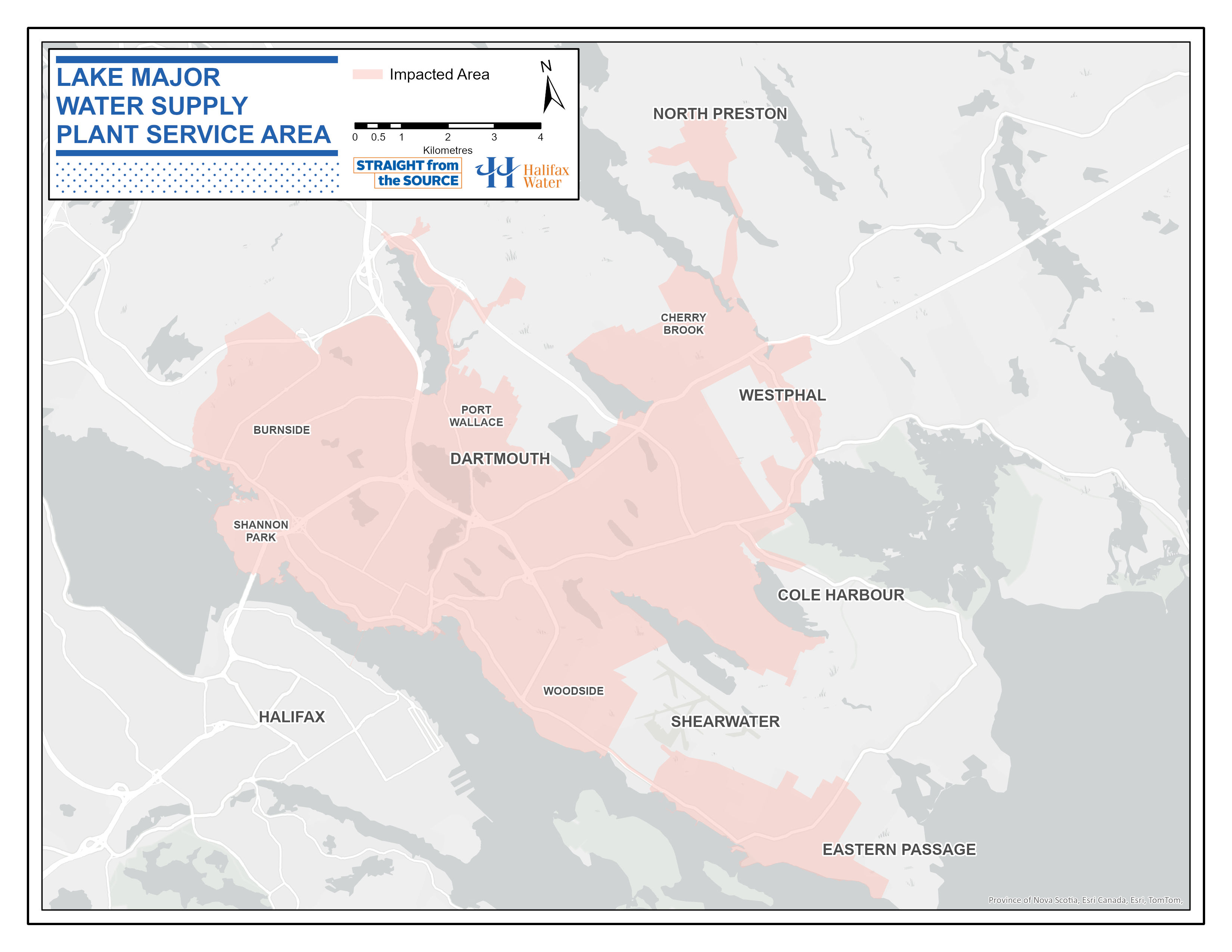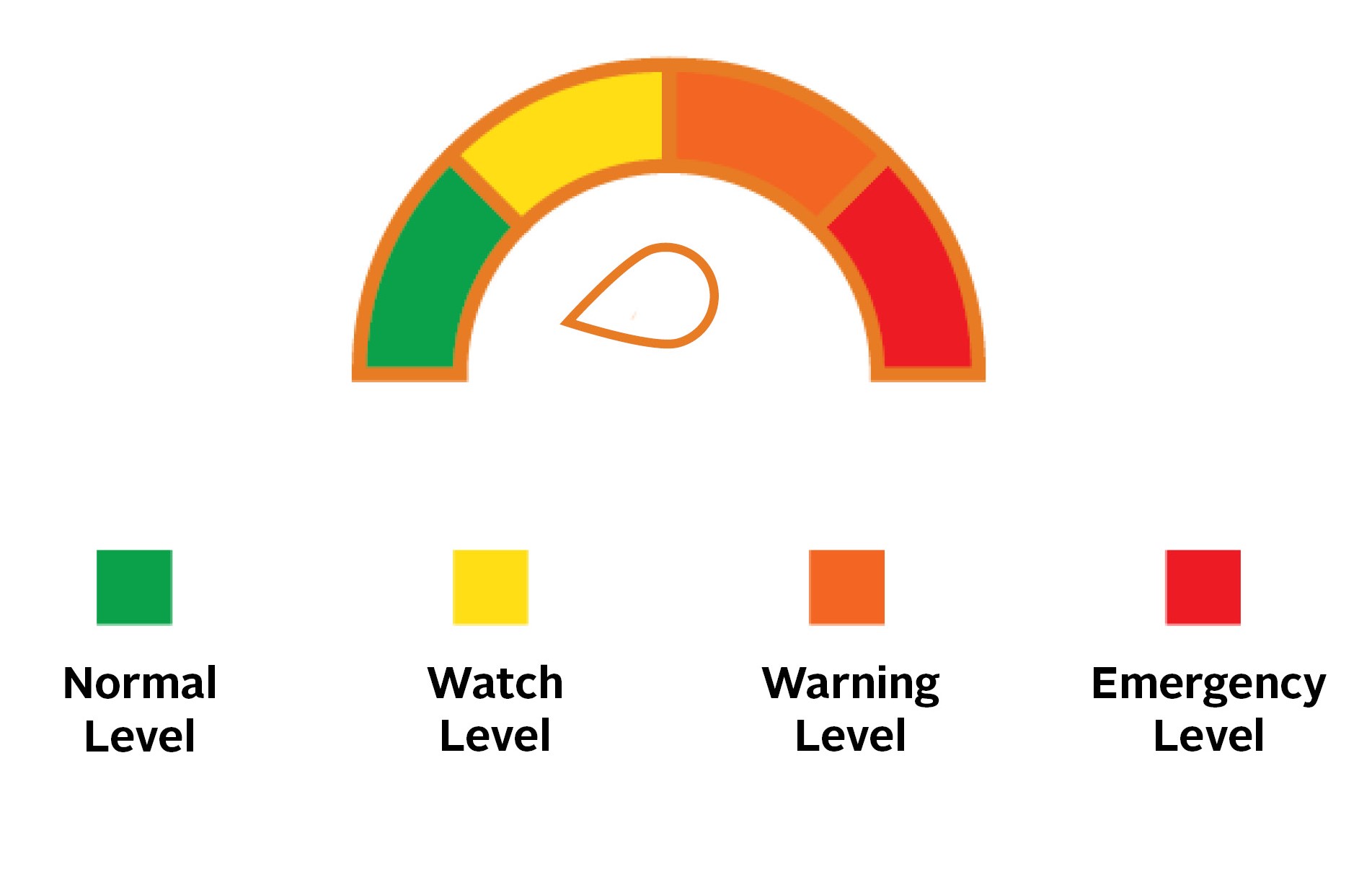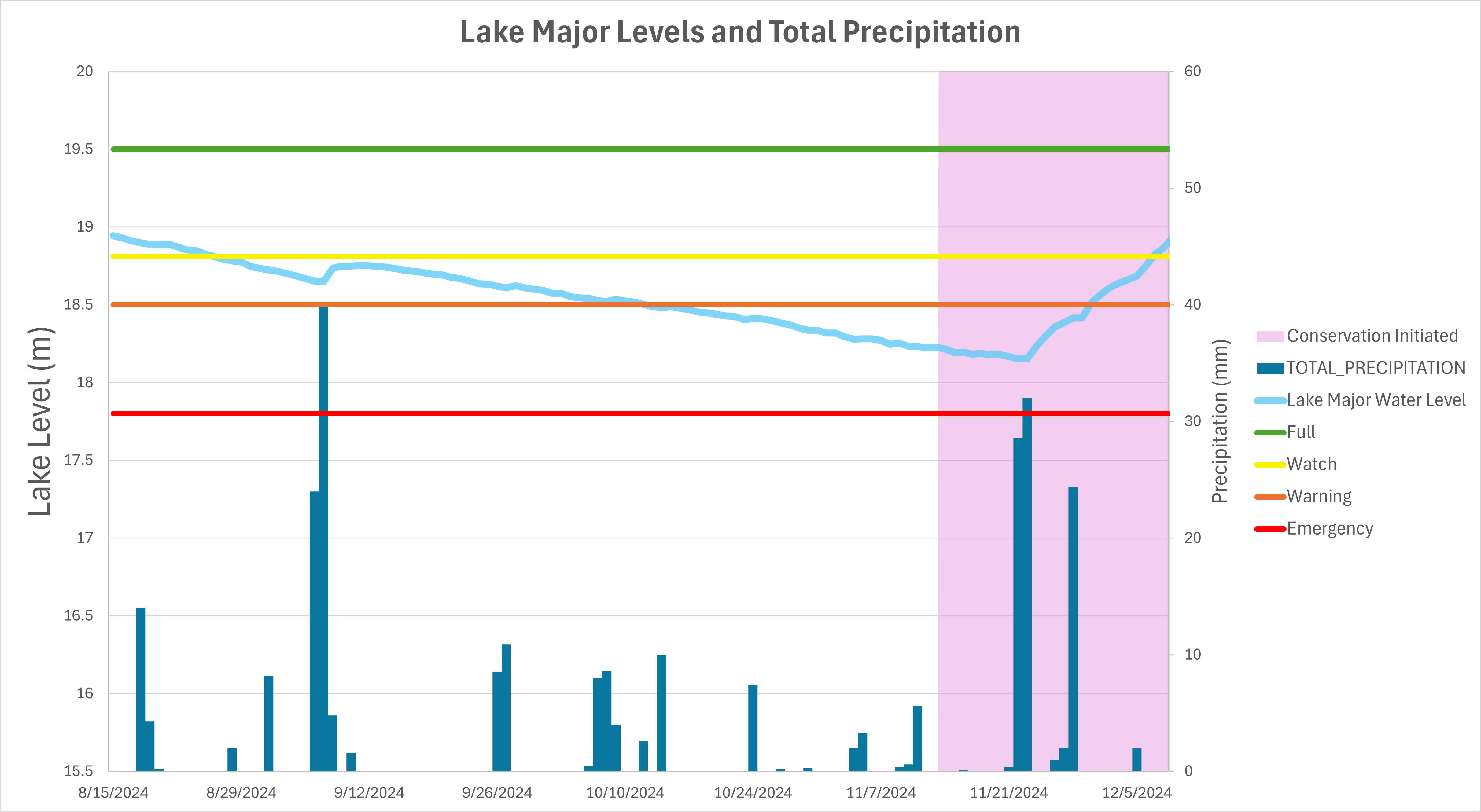As of Monday, December 9, 2024, the Lake Major Water Conservations Measures have been lifted.
Water Supply Risk Level
Normal Level
The region has experienced significant rainfall over the past few weeks, with the water level of Lake Major currently at approximately 18.95 metres. The reservoir is now within the normal water level, and all voluntary and mandatory restrictions have been removed.
Customer conservation efforts helped decrease overall water usage within the system between 5 per cent and 10 per cent.
This information was last updated on December 9, 2024.
Water Supply Levels
As of December 9, 2024
November 26, 2024
In accordance with Halifax Water’s Water Shortage Contingency Plan, this places the system in the warning phase. Mandatory Restriction for Certain Water Usage are now in place. See below for further details. For more information see here.
November 14, 2024
In accordance with Halifax Water’s Water Shortage Contingency Plan, this places the system in the watch phase.
As part of the next stage of the Lake Major Water Supply contingency plans, mandatory restrictions are being introduced - effective immediately (November 26, 2024) - for the following activities:
- Lawn, garden, plant watering or other outside water usage is prohibited.
- Car/RV or other vehicle washing at home is prohibited
- Bulk water fill-up stations on the Lake Major system are now closed (haulers must use alternative locations identified by Halifax Water)
- While most of these activities are now out of season, please note that the use of water supplied by the Lake Major system is prohibited for making backyard ice surfaces.
Lake Major serves the communities of Dartmouth, Burnside, Cole Harbour, Eastern Passage, North Preston and Westphal (see attached map for affected service area).

In order to conserve water, Halifax Water is instituting a voluntary water conservation measures for all residents and businesses supplied by the Lake Major Water Supply Plant, until further notice. The water conservation measures include:
- If it’s yellow, let it mellow. Depending on the efficiency of your toilet, each flush uses between 6 to 26 litres of water.
- Shorten your showers. Cut back on the frequency and length of showers.
- Turn off the tap when you don’t need it. Turn the tap off when brushing your teeth, shaving, washing your face etc.
- Wash only full loads of laundry and dishes.
These voluntary water conservation measures are being implemented to maintain essential water service for all customers in the Lake Major service area. Conserving water will help avoid a potentially serious situation involving future water outages.
Reducing water consumption and saving water has never been easier. Any number of the tips below can get you started on saving water inside and outside your home:
Conservation Inside Your Home
- Install low flow shower heads and appliances
- Install a dual flush toilet
- Regularly check for and repair any leaks
- Wash only full loads of laundry and dishes
- Take shorter showers by reducing your current shower time by a couple of minutes
- Turning off the water while brushing your teeth
- Fill the sink with water when shaving rather than allowing the water to run
- Take frozen food out of the freezer early to allow time to thaw without running under hot water
Conservation Outside
- Reduce or stop lawn, garden, plant watering or other outside water usage.
- Reduce or stop car/RV or other vehicle washing at home
- Check for leaks in pipes, hoses, faucets, and couplings
- Leaks outside the house may not seem as bad since they are not as visible, but they can be just as wasteful as leaks inside. Check frequently and keep them drip-free
- Catch rainwater in barrels for use later in your garden
- Using mulch as a ground cover in flower beds
- Sweeping driveways and walkways, never use water to clean driveways/walkways
- Keeping swimming pools covered when not in use
- Turning off your hose when washing your car. Turn the hose on to rinse only
- Allowing your lawn to go dormant (brown) during drought periods. It will recover after a good rainfall
Residents who receive their drinking water from a source other than Halifax Water, such as private well systems, are not subject to the voluntary water conservation measures from Halifax Water. However, with water levels at Lake Major and other lakes across the municipality dropping, it is likely that the water table throughout the municipality is also lower than normal. Residents who rely on private well systems for drinking water may wish to conserve water to mitigate the risk of wells running dry.
The Province of Nova Scotia’s Department of Environment and Climate Change (NSDECC) is the authority on private well systems and has the following resources available for residents to refer to:


